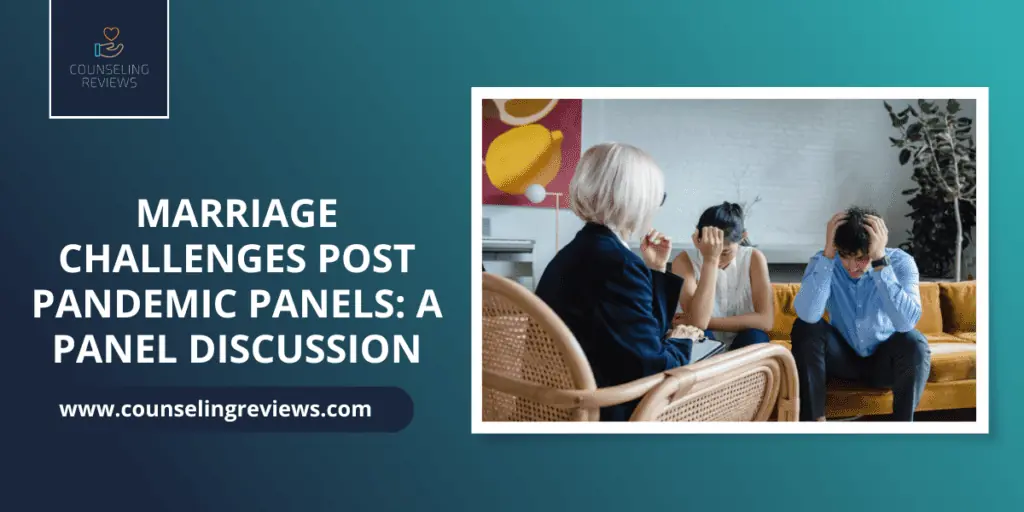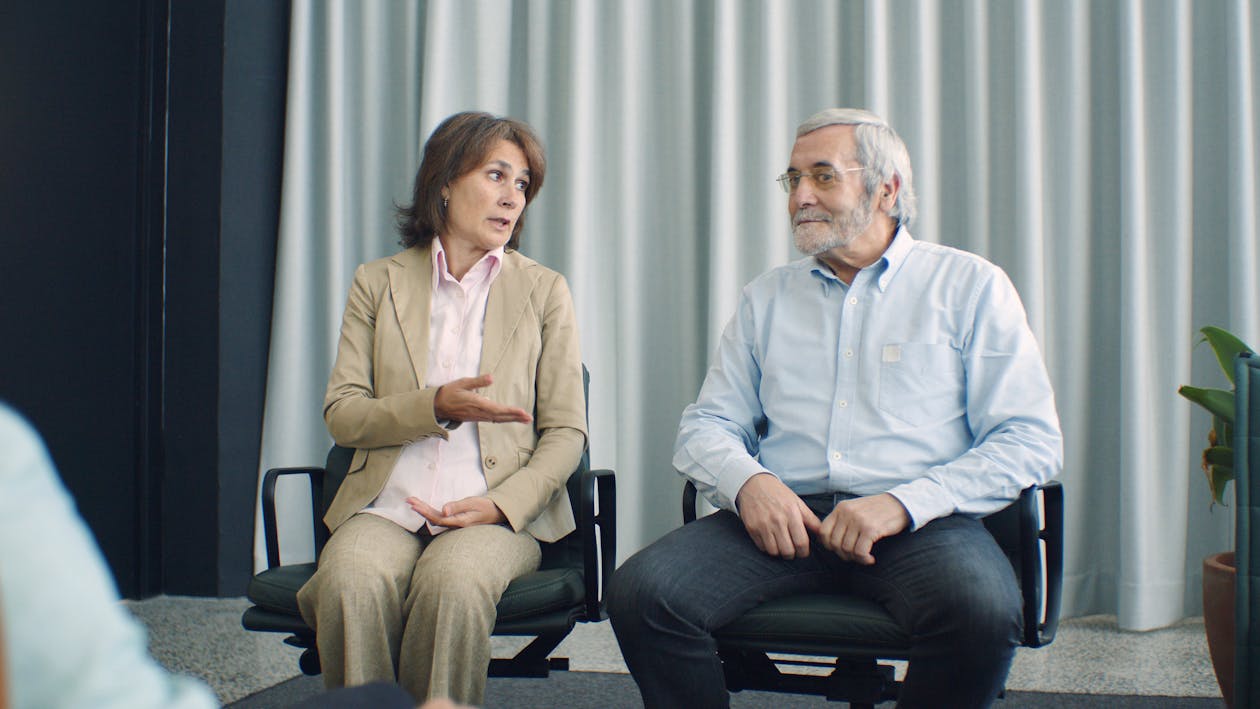The pandemic has dramatically changed the way people communicate with each other. Married couples are no different. They have grown more distant and have been facing various problems in their marital lives. Therapists have noticed that many married couples are experiencing disturbances and tumult within their relationship dynamics.
There are several reasons for this. Lockdowns created intimacy issues because couples were forced to work together from home or stuck in different cities. In the latter case, they could not be with each other for a very long time. In both extreme scenarios, married couples deviated from their usual communication patterns and jeopardized their typical interaction styles.
Consequently, marriage challenges are common worldwide, and most therapists seem to agree. To understand these problems in depth, we decided to connect with three marital therapists who are well acquainted with these problems.
We spoke to Toni Assaker, a therapist at OB-Hustle, Gayane Aramyan, LMFT, and Joylene Green, LMFT, Owner of Family and Friends Counseling.
Toni Assaker is a therapist with 2 years experience, and also has a side hustle to juggle with. Gayane is a licensed marriage counselor, and family therapist from Los Angeles, CA. She is trained in Emotionally Focused Therapy and loves working with couples. On the other hand, Joylene Green is a Licensed Marriage and Family Therapist and has over 18 years of experience in the behavioral health field. Joylene uses scientifically researched approaches to help individuals, couples, and families reach their goals.
1. What sort of problems and challenges do married couples face today?
Toni: Married couples today, especially young ones, get bored easily. They often imagine that after their marriage, they will be happy forever, without understanding the true weight of being a married person! This generates a feeling of inadequacy, as they often have to face the realities and challenges of being married.
Gayane: In my opinion, married couples have a hard time with communication. Especially after the pandemic, couples are having a hard time differentiating their roles and how they show up in their marriages.
Joylene: I would say infidelity is the biggest problem for couples. This hasn’t really changed pre or post pandemic.
2. In what areas are these challenges most evident?
Toni: These challenges are seen within the marital relationship. In addition, they also percolate into daily routine and parenting responsibilities.
Gayane: Couples have a hard time deciding responsibilities, communicating with each other, and allocating roles. Most find it hard to decide who takes care of household chores, who works, and who cooks and cleans.
Joylene: Lack of communication is a serious issue. Frankly, this has been around forever, but I feel it is now more pronounced due to technology. If you look around during a restaurant visit or even at people’s homes, everyone is on their phone. This breaks down communication to a large extent.
3. Before the pandemic, what were the most common challenges you were facing with married couples?
Toni: Before the pandemic, the most common problems were about parenting, social media usage, and rifts between parents and children.
Gayane: Communication has always been the main issue. However, the pandemic blurred the lines of roles for couples. People had to work from home, and that created a lot of issues with regard to expressing needs and desires.
Joylene: Like I mentioned before, infidelity is the biggest problem both before and after the pandemic. Anxiety in general has affected more couples post pandemic. Particularly, I see more health anxiety, which makes sense.
4. What is your advice for married couples with post pandemic challenges?
Toni: I would advise them to stop spending so much time on social media and Netflix. I would also request couples to fight the anxiety of being stuck at home during lockdowns. Instead, they can work on shared activities and spend some precious time together as a family. Such times may never recur in married life again!
Gayane: My advice is quite simple. Pay attention to how you communicate with your partner. Your partner isn’t your enemy. You are on the same team. Language has so much power in relationships!
Joylene: Couples need dedicated time for connecting face to face. They should keep their phones aside for a while.
5. What therapies would you recommend for married couples?
Toni: I recommend reflective listening and emotionally focused therapy. These therapies empower couples to find comfort in each other. Narrative therapy is another option.
Gayane: Emotionally Focused Therapy is wonderful because it focuses on what each person feels and their experience. Most of our issues come from the desire to feel needed, loved, wanted by our partner. This is why the goal of this therapy is to get to the bottom of what each person feels and learn how to communicate that effectively with our partners.
Joylene: I practice evidence-based therapies for couples, individuals, and groups alike.
What are some common marriage problems?
Ineffective Communication:
Marital problems often stem from a lack of effective communication. Many couples avoid addressing issues, leading to unresolved conflicts and growing resentment. To improve communication in your relationship, prioritize active listening and encourage open expression of thoughts and feelings. Communication skills are essential for a healthy relationship.
Intimacy Challenges:
Intimacy is a crucial aspect of a marriage, but it can wane due to emotional issues, medical concerns, financial stress, or routine. To maintain a loving marriage, prioritize physical intimacy by discussing desires, concerns, and any issues affecting your intimate connection openly with your partner. Honest and open communication about sexual intimacy itself is vital.
Different Life Stages:
Couples experiencing different life stages, such as age differences or evolving interests, can face challenges in their relationship. To bridge these gaps, make your relationship a priority through regular date nights, shared activities, and exploring new hobbies together. These efforts can help you reconnect despite age difference or life goals or stage differences.
Infidelity:
Infidelity, whether physical or emotional, can severely damage trust in a marriage. Healing from emotional infidelity often requires understanding, hard work, and forgiveness from both partners. Address emotional distance or physical distance honestly with your spouse to prevent infidelity, and if it occurs, approach the situation with honesty and empathy.
Excessive Jealousy:
Jealousy can escalate into a daily battle in a marriage, often stemming from underlying self-esteem or attachment issues. Seek professional help if jealousy becomes a persistent problem in your relationship with other spouse, as it may indicate deeper emotional or mental abuse issues.
Boredom:
Monotony in daily routines can lead to boredom in a marriage. To rekindle the spark, communicate your feelings of boredom with your spouse and introduce exciting activities into your relationship. Pursue shared hobbies, engage in regular date nights, or explore new experiences to inject energy and intimacy back into your marriage.
Disregarding Boundaries:
Respecting each other’s individuality and respecting boundaries, is crucial in a healthy marriage too. Overstepping boundaries erodes trust. Maintain your own space and freedom, and communicate healthy boundaries clearly with your partner to preserve a healthy and supportive relationship.
Managing Stress:
Stress from various life aspects can negatively affect a marriage. Learn to manage stress effectively through activities like journaling, exercise, yoga, creativity, or outdoor walks. These stress-management techniques can help you navigate challenging times in your marriage. Engaging in these activities together can strengthen your bond.
Differing Values:
Major disagreements about core values, such as religion, politics, or child-rearing, can strain a marriage. Address these differences through effective communication and understanding. Seek therapy to facilitate productive discussions and find common ground when values clash.
Financial Conflicts:
Money problems are the most common marriage problems as in relationships, even for those with enough resources. Regularly discuss finances, future goals, and spending habits with your partner to keep healthy balance and prevent conflicts. Consider having monthly finance dates to make joint financial decisions and ensure both partners are involved in financial planning.
Coping with Trauma or Grief:
Traumatic events, emotional abuse or grief can challenge even strong marriages. Recognize that grieving processes may differ between partners and allow each other space, compassion, and time. Seeking professional help, such as grief therapy, can aid in personal recovery and strengthening the relationship.
Managing Social Media:
Excessive social media usage can disrupt a relationship by encouraging unhealthy connections and distractions. Establish guidelines with your partner to manage social media usage, ensuring it doesn’t interfere with quality time together, especially during intimate moments.
Is It Normal to Have Problems in Marriage?
Is it common for couples to encounter challenges and different values in their marriage? Yes, it’s almost inevitable that couples will face marital issues at different points in their relationship. What distinguishes successful marriages is the strength of the bond between partners and their ability to navigate and resolve these problems effectively. While some serious marriage problems and issues can lead to disappointment and resentment, with commitment from both partners, it’s possible to overcome even the most formidable obstacles.
Reflective listening and emotionally focused therapy help couples beat the blues
Indeed, the lockdown has dramatically changed the way married couples interact with each other. There have been infidelity issues, loss of interest in intimate relationships, and a need to be alone.
Conversely, many couples have become very needy, which has begun interfering with their marital relationships. Couples with children face problems, especially regarding social media and Netflix. They cannot spend time with each other and ensure that children spend quality time with their parents.
This panel discussion was fruitful and helped us understand how marriage therapists deal with conflicts between couples and their children. To address these issues, marital therapists advise opting for reflective listening and emotionally focused therapy. These therapies are known to reset relationships and improve problems within family members of the marriage dyad.
Marriage Counseling Online
Online marriage counseling offers numerous benefits and valuable solutions for couples seeking to improve their relationships. One of its primary advantages is accessibility; couples can access therapy from the comfort of their own homes, eliminating travel time and scheduling conflicts.
Online counseling also provides a level of privacy that some couples find more comfortable, allowing them to openly discuss sensitive issues. It offers a wide range of communication options, including video, chat, or phone sessions, catering to individual preferences.
Moreover, online marriage counseling often comes at a lower cost than traditional in-person therapy, making it a cost-effective option for couples seeking professional guidance to resolve conflicts, improve communication and other differences, and strengthen their relationship.
Conclusion
The pandemic has undeniably brought forth a unique set of challenges for married couples, affecting their communication, intimacy, and daily routines. However, it is heartening to see that therapists offer valuable insights and therapeutic approaches to help couples navigate these difficulties. Reflective listening, emotionally focused therapy, and dedicated face-to-face time are just a few of the tools available to couples seeking to strengthen their bonds post-pandemic.
Additionally, online marriage counseling emerges as a practical and accessible solution to marriage problem, offering couples the opportunity to address their marriage issues, and rekindle their relationships from the comfort of their homes. With commitment and the right resources, couples can overcome the challenges posed by the pandemic and emerge with stronger, healthier marriages.






